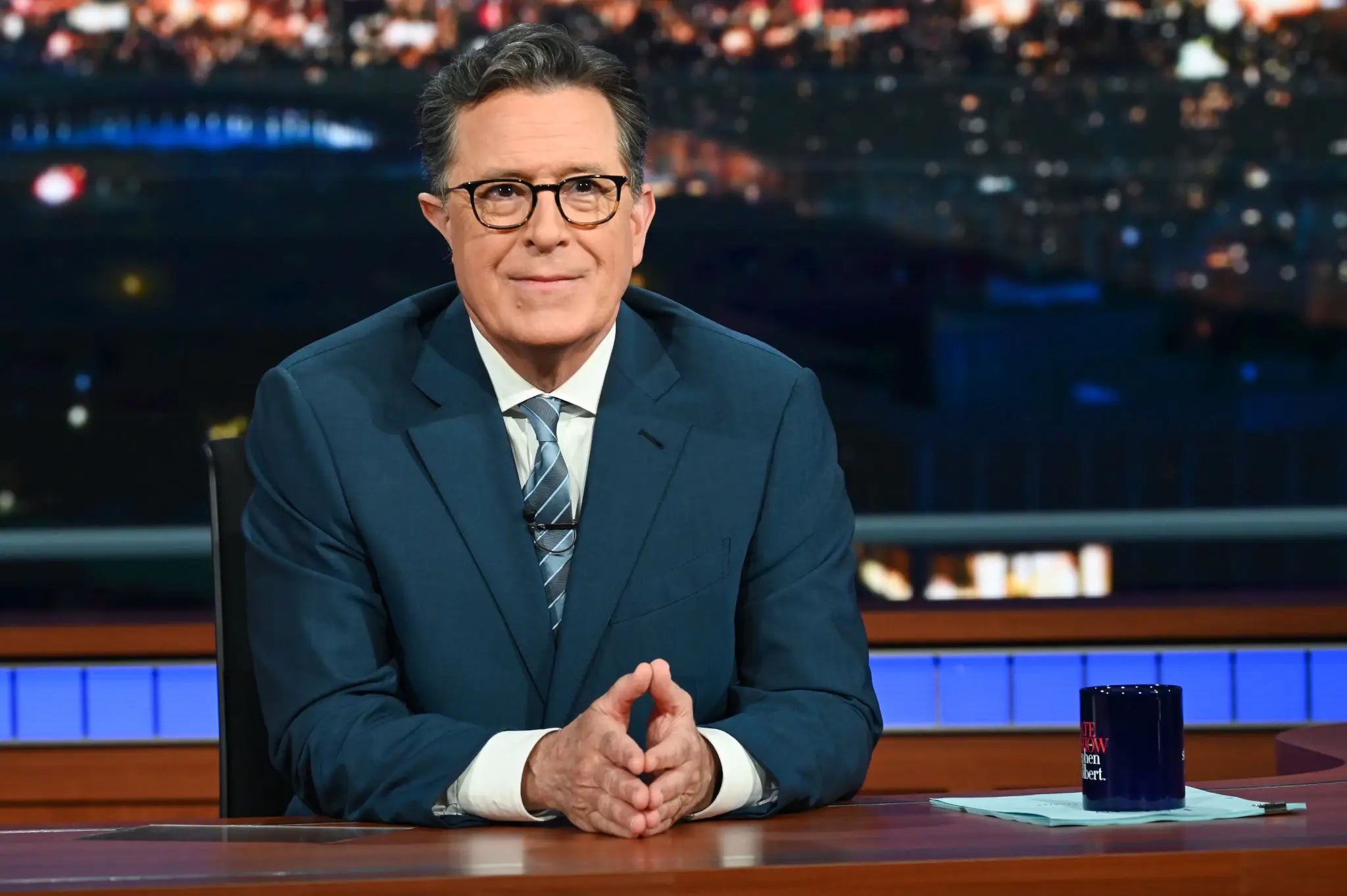In a Shocking Turn of Events, a CBS Executive Says They Fired Stephen Colbert for Losing Them $40 Million a Year, NOT Because He Hates Trump
 CBS Photo Archive. Getty Images.
CBS Photo Archive. Getty Images.As we continue to do the forensics on some of the biggest media figures in the most prestigious positions in all of entertainment like Stephen Colbert and Howard Stern losing their jobs, it's been tempting to blame it on a cultural shift that took place at the beginning of November. A temptation many have given into:
Sometimes with remarkably similar language:
But if this high-ranking CBS executive and candidate for the Funny Name Society is speaking the truth, there was a much older, more basic principle at work here. One that you don't have to be a business mogul to understand:
Deadline - There has been much written about CBS’ decision to cancel The Late Show with Stephen Colbert but there’s been little word out of the company itself.
But after Skydance’s deal to take over Paramount became official this morning, George Cheeks, who is Chair of TV Media at the company, put his head above the parapet.
“The challenge in late night is that the advertising marketplace is in significant secular decline,” Cheeks said at a press conference after the deal closed. “We are huge fans of Colbert, we love the show, unfortunately the economics made it a challenge for us to keep going.”
He added that … it became clear the network “couldn’t stay in that daypart”.
“I know [Skydance] is going to invest, but they’re going to invest cautiously and wisely, so for me, managing this business is really important for me to double down [in] primetime and sports,” he added. …
He didn’t disclose exactly how much The Late Show was losing – insiders were pushing numbers around $40M a year, but he did admit that it was “significant” and in the “tens of millions of dollars”.
“At the end of the day, it just wasn’t sustainable to continue,” he added.
Ordinarily, I can't stand it when people say "At the end of the day." First because it doesn't mean anything. And two, no one ever just uses that occasionally. You either never say it, or it's coming again in the next three or four sentences. But I have no issue with Mr. Cheeks (which sounds like a Monty Python character) when he says it because it's quite literally true. A $100 million budget is not sustainable, at the end of the day, when hardly anyone is watching television. Not when your show is pulling just over half of the competition's audience for a fraction of the cost:
Gutfeld! is a talk show that is exactly what the name implies. It's a half dozen or so people sitting in chairs and talking. Colbert has been a managing a high-end, upscale restaurant filled with empty tables while a basic cable operation has parked a food truck across the street with a line around the block. So ownership has decided it's not worth staying open.
At least that's how it sounds when George Cheeks explains it. I'm no economist, but you don't need to be Adam Smith to understand that a media company exists to make money, not pander to a particular, narrow sliver of one demographic so their audience can go to bed feeling self-righteously angry at people with Covid shot hesitancy:
By the same token, if a program like The Late Show was hauling in tens of millions, the executives like Cheeks who just chose to take it off life support would be extending Colbert's contract. In fact, they'd be ordering more programming built around making fun of Trump and doing interviews this opponents, not less. They'd put Keith Olbermann on after Colbert. They'd be greenlighting prime time dramas like Chicago Democratic Ward Boss and Teenage Sheldon Owns the MAGA Idiots. And Ghosts would feature a new character that's Trump's late wife who just talks about how small his dick is to the sounds of a laughtrack for 24 minutes every week.
But to the surprise of no one who knows what an entertainment company is in the business of doing, CBS wants maximum viewers for minimum expense so they can charge the most money per ad buy they possibly can get. A novel concept, I know. But it's worked out pretty well since Philo T. Farnsworth invented the television. Go figure it still does.
